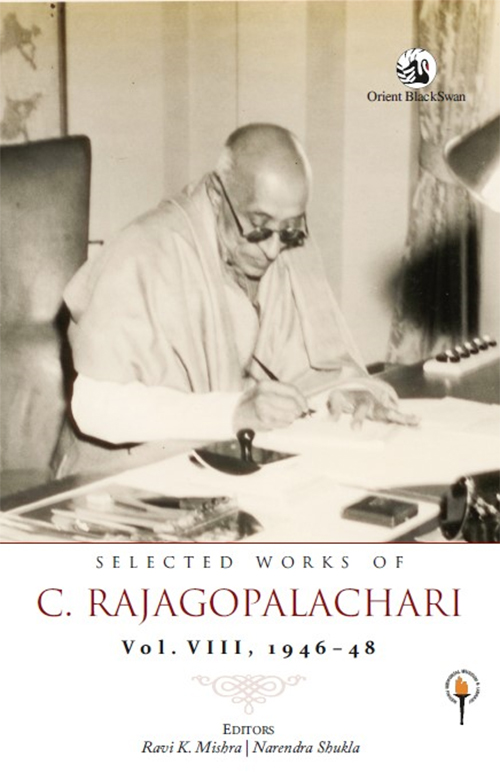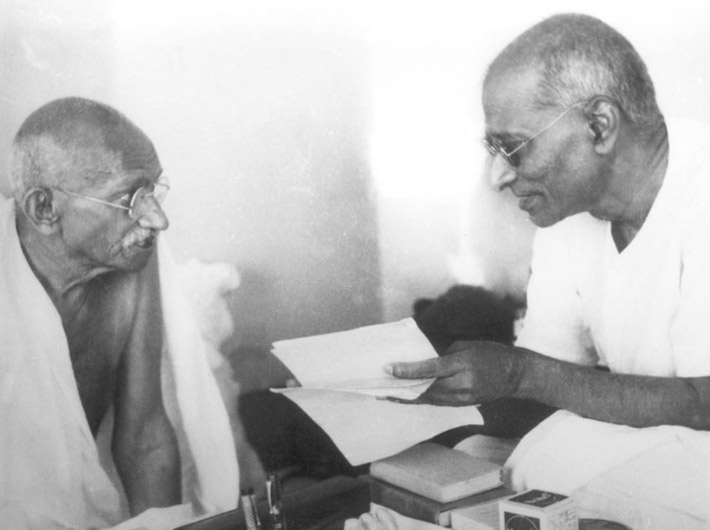In the run-up to Independence, C. Rajagopalachari predicted India will be a “great country”
Selected Works of C. Rajagopalachari: Vol. VIII, 1946–48
By Ravi K. Mishra and Narendra Shukla (Editors)
Orient BlackSwan, 460 pages, Rs 2,575

This volume is the eighth in a series of ten volumes of the Selected Works of C. Rajagopalachari, being published in association with the Nehru Memorial Museum and Library (NMML). This volume covers the period from April 1946 to December 1948, detailing Rajaji’s important role in the governance of the country, first as a Cabinet Minister, then as a Governor, and eventually as the first Indian Governor-General of India and also the last Governor-General.
This was also a transformative period in the history of India because of Independence and Partition. The volume also covers subjects such as the deep impact of the tragic loss of Mahatma Gandhi, Rajaji’s vision for independent India, his correspondence with Lord Mountbatten, and negotiations with the Nizam of Hyderabad.
Rajaji believed that the youth were the principal force in shaping the country’s future. His addresses to the students and youth of the country, including those of the universities of Madras, Nagpur, Benares and Aligarh, emphasising this, form an important part of the volume.
The editors are Ravi K. Mishra, deputy director, NMML, and Narendra Shukla, head, research and publications division, NMML.
Here is an excerpt from the book
India will be Great and Independent Country: Appeal for United Effort
MADRAS,
May 15 1947
Replying to the civic address presented to Dr Rajendra Prasad and himself last evening, Mr C. Rajagopalachari, Member for Industries and Supplies in the Interim Government, while regretting that the people of India had not been able to put up a united front and a united plan even when Britain had declared her intention to hand over power and responsibility to Indian hands by June, 1948, said that it was not “the business of Britain or her Government to make an ideal constitution for us or a re-arrangement of our country for us and go.” “Let them frame or put in their place here some kind of authority,” he added, “and it will be left to us, with experience and wisdom, to reshape the whole thing in course of time and very soon.”
Mr Rajagopalachari in the course of his reply, humorously remarked that he had been “badly treated” because the Mayor had imagined that he was a visitor and practically a stranger to the city. He added that he belonged to this place and wished to regard himself as one of those who had assembled “to receive and honour Babu Rajendra Prasad, an old friend and a most precious citizen among the citizens of India.”
“The people of India,” Mr Rajagopalachari continued, “are going to undergo a great trial. There is no doubt about the trial because the symptoms have already shown themselves. On this most auspicious occasion when a miracle has happened, when the British people have convinced the suspicious people of India that they are sincere about handing over power and responsibility by June, 1948—power and responsibility not even excluding the responsibility and the right to separate ourselves from Britain, if necessary, or if desired—on this great occasion that we should not have been able to present a united front and a united plan is the grave symptom that I referred to. Many have been our apprehensions. It was possible, if we have been lucky, that on this most sacred and trying occasion we might have been able to present an agreed plan. Unfortunately we have not been able to do that. I do hope still—let us all pray—that the darkness will end and that we shall have a miracle once again and we will be able to put up an agreed plan, willingly or unwillingly cheerfully or sadly; but, whatever may be the plan, we have no doubt—Babu Rajendra Prasad and myself—that India will be a great and independent country. Whatever may be the form of Government, whatever may be the form of the authority that is to prevail during the crisis now, we will soon be a great people commanding the admiration of the people of the world because we are a good people.
We Shall Unite
Speaking for himself, Mr C. Rajagopalachari said: “I do not think that the form of authority which Britain will leave behind when she goes away from India will continue in that form. If they leave us divided we are sure to unite again; if they leave us united, we must be ready to divide also afterwards. It is not their concern. Whether we shall be divided or united will depend upon our own wisdom or our own policy and we shall be free to arrive at a conclusion after a little thought and a little experience and not in this great hurry.”
Concluding, Mr Rajagopalachari said: “Apart from Britain’s responsibility in this matter, let us also have courage. Let us not lose our confidence in ourselves; let us not get nervous about it. What is going to be done now when Britain departs is not necessarily the last word on the subject. Let us make mistakes and correct them. There is a joy in doing our own house-building, reshaping and beautifying our own house. It is, therefore, no occasion for fear or apprehension. Don’t get nervous when you read in newspapers that Mr Jinnah does not agree or Mr Atlee does not agree. Let them not agree; but let them all leave at least a ‘second-hand car’ which we shall be able to reshape and recondition afterwards.”
This report first appeared in Hindustan Times on 16 May 1947. Rajaji was replying to the civic address presented to him in Madras, 14 May 1947.
[This excerpt from the book reproduced with the permission of the publishers.]
